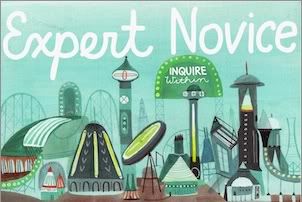
I read boingboing pretty religiously, and so I'm exposed to a heavy dose of Cory Doctorow's free culture philosophy. The free software movement, and the related free culture movement, both go beyond the simple idea of "open source" to say that everything from code to music to art to writing can benefit from being not just "free" as in "doesn't-cost-anything," but "free" as in "a source or beneficiary of freedom." There are lots of ways to unpack the meaning of "free," but my impression is that these movements want to tap into that multiplicity. This especially struck home when I realized that while Free Software Day was the title on the posters and t-shirts, the Free Software Foundation website referred to the event as Boston Software Freedom Day. While the promise of free software might lure in unsuspecting passerby or broke college students, the core of the movement has to do with the freedom that technology can afford people all over the world, and the importance of keeping access to that freedom non-proprietary and open.

So! While I didn't actually walk away from Free Software Day with any free software, I did gain a much better understanding of what the movement is all about. It's really fascinating to see computer activists all gathered together in one physical location; I saw a lot of laptops covered in bumper stickers, which I guess kind of epitomizes the techno-activist nature of this whole endeavor. While I'm not sure I'm ready to be a free software activist myself, I think that understanding the passionate core of the movement is absolutely necessary to understand its more mainstream projects, such as Linux or Mozilla Firefox. Of course, the free software movement doesn't "own" these projects, or even "control" them; that's part of the whole point, that nobody fully owns or controls these projects. However, as vocal contributors and idealistic boosters of such projects, free software activists are incredibly influential in these fundamentally collaborative ventures.




1 comment:
Look into the Whole Earth Catalog, it's sort of the Bible around these parts. Also, John Markoff's "What the Dormouse Said: How the Sixties Counterculture Shaped the Personal Computer Industry" is a pretty good read into how we got here and why and for what reasons. The Free Culture movement is the direct descendent of all of that work in the Valley in the '60s and '70s. Very good stuff, very interesting reading.
Post a Comment